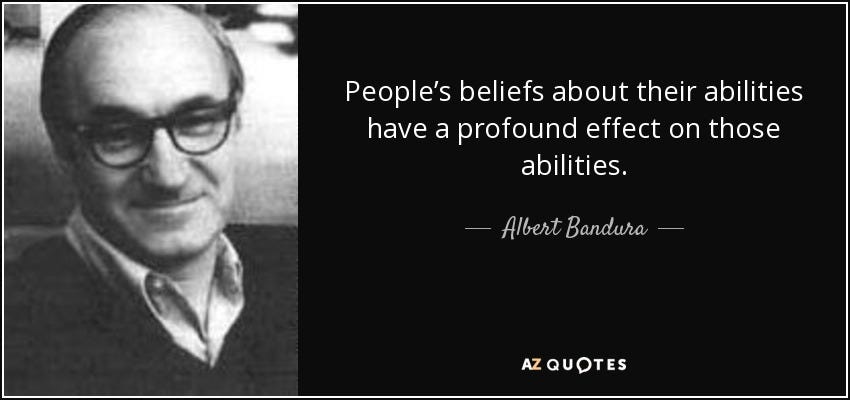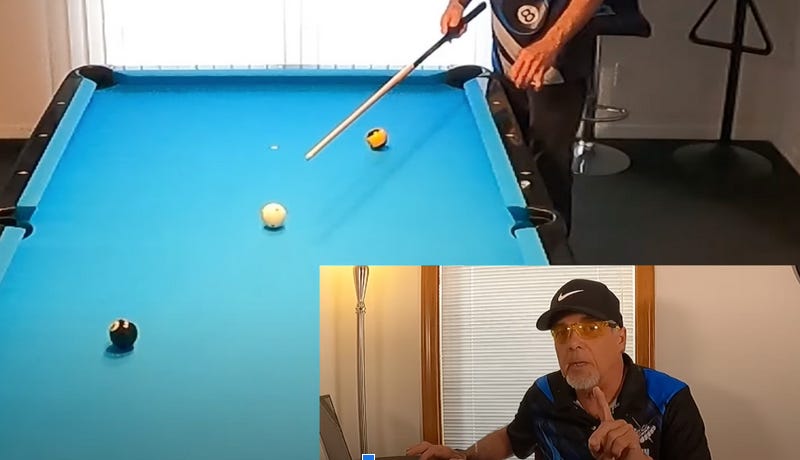Efren Reyes, one of the greatest pool players of all time, is known not just for his skill, but for his work ethic, creativity, and humility. He’s often linked with the quote by professional golfer Jerry Barber:
"The more I practice, the luckier I get."
Is it really luck? Is it talent? Hard work?
This post is the fourth installment in a series about the KASA framework, a way of understanding what changes as a result of learning:
Knowledge = Facts and information
Awareness = The ability to notice patterns, make predictions, and draw conclusions
Skills = Physical and mental abilities
Attitude = Beliefs, feelings, and values about learning and the subject matter
Today, we focus on the A for Attitude.
Do You Believe You Can Improve?
In pool halls, you might hear players say:
“Some people are just naturally good at pool.”
“I hate drills.”
Statements like these reflect attitudes—beliefs, values, and emotions that can either support or hinder learning. In the Science of Learning, attitude is a deeply researched area, particularly through the lens of self-efficacy and mindset.
Self-Efficacy in Learning and Pool
Albert Bandura, a pioneer in educational psychology, introduced the concept of self-efficacy: the belief that one can succeed in a specific task.
While confidence is more general, self-efficacy is task-specific. It affects:
How much effort we give
How long we persist through challenges
How we respond to setbacks
In Pool:
A player with high self-efficacy will:
Stick with difficult drills
Reflect on mistakes with curiosity
Believe improvement is possible through effort
Can We Develop Self-Efficacy?
Yes! Bandura outlined four sources that build self-efficacy:
1. Mastery Experiences
“I did it before, so I can do it again.”
Set up challenging but achievable practice sessions that create a sense of success.
2. Vicarious Experiences
“If they can do it, maybe I can too.”
Watching others improve can shift your belief about your own ability.
3. Verbal Persuasion
“You’ve got this!”
Encouragement from a coach, mentor, or teammate can increase belief in your ability.
4. Emotional States
“When I’m calm and focused, I perform better.”
Managing emotions can help players stay in a mental state conducive to learning.
The Role of Teachers and Role Models
We can see examples of self-efficacy development especially in Youtube instructional videos for pool. For example, Ron the Pool Student, a popular YouTuber, shares:
“It’s so difficult, but if you practice smart, you can learn much quicker. I've been at this only 38 months and I'm 68 years old. I'm not supposed to get good at pool, but I’ve gotten a lot better than when I started. I'm not saying I'm good—just that it can be done.”
This kind of message helps players feel motivated, capable, and ready to practice with purpose.
From the YouTube video, “How to practice pool with purpose”
Watching videos like Ron’s can create a vicarious experience that boosts self-efficacy. If that motivation leads to meaningful practice and a mastery experience, it can reinforce the belief that learning is possible—shifting attitudes toward valuing practice.
Growth Mindset: Another Key Attitude
Carol Dweck, a Stanford psychologist, introduced the concept of growth mindset—the belief that abilities and intelligence can be improved with effort and learning.
In contrast, a fixed mindset assumes intelligence is given at birth and are static.
In Pool:
A growth mindset: “I can get better at pool if I practice.”
A fixed mindset: “I’ll never be really good—I just don’t have the talent.”
(Image from Ameet Ranadive’s blog post “Fixed vs. Growth Mindset”)
The graphic shows how a growth mindset changes how we approach:
Mistakes
Challenges
Feedback
Rather than seeing these as threats, players with a growth mindset embrace them as opportunities.
Summing It Up
Self-efficacy is about believing you can succeed at a task. We need it as we work on challenging shots or drills in pool.
Growth mindset is about believing you can improve through learning and effort. This attitude is a more long-term approach that can sustain us as we work on our pool game.
Both are attitudes that affect how we approach learning.
To be clear, attitude doesn’t replace practice—but it shapes how you show up to that practice. The right mindset can turn effort into progress.
In the next post, we’ll dig into the characteristics of deliberate practice and how it supports long-term improvement.
Reflect and Discuss
What do you think of Bandura’s idea of self-efficacy and Dweck’s growth mindset?
How have you seen attitude or beliefs affect learning?
Drop a comment—I’d love to hear your thoughts!
References
Bandura, A. (1977). Self-Efficacy: Toward a Unifying Theory of Behavioral Change
Dweck, C. (2006). Mindset: The New Psychology of Success




